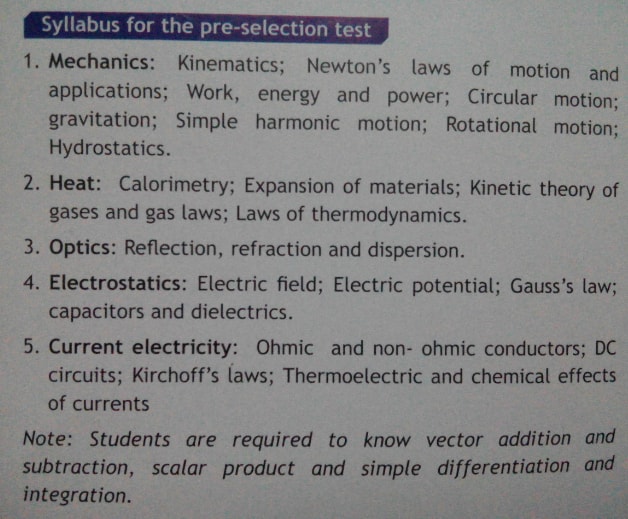Nepal Physics Olympiad
This blog was written by me and Sanam Limbu in 2017, and we have tried to keep it up to date. But still some information might be a bit old. Feel free to mention in the commment if there are any inconsistencies. I'll try my best to respond.
Nepal Physics Olympiad (NePhO) is an annual national level competition in physics organized by Nepal Physical Society (NPS). The top 5 contestants will be able to participate in the International Physics Olympiad (IPhO), representing Nepal team.
Eligibility
The participant must not have entered any university and must be under the age of 20 until June 30 of the participating year.
Form Availablity and Submission
The form is usually available in late January and must be submitted within around two weeks. You should refer to the notice provided by Nepal Physical Society (NPS) or Nepal Physics Olympiad for detailed information. You may even join the Facebook Group Nepal Physics Olympiad Discussion. The forms will be provided to your school. So keep in touch with your teachers. In case it is not available in your school, contact the respective member for your area.
Structure of the Competition
The competition is carried out in two stages (both of which are 3 hours long theory exams):
- Pre-selection exam: It is conducted in mid-February in various cities (Kathmandu, Pokhara, Biratnagar, Birgunj, Bharatpur, Butwal, Nepalgunj, Dhangadi, and Mahendranagar in 2017). The syllabus for pre-selection exam is totally from grade 11, except the current electricity portion.

Syllabus of Nepal Physics Olympiad preselection
- Final round: After the board exam of class 11 (0r 12, depending on the situation), the candidates will be given training for about a week and the final exam will be conducted selecting top 5 students for which the syllabus will contain concepts from grades 11 and 12 and basics of special relativity.
Model Questions and Past Problems
- Final round NePhO 2016
- Model question NePhO 2017
- Pre-Selection NePhO 2017
- Final Round NePhO 2017
- Pre-Selection NePhO 2018
- Final Round NePhO 2018
If you have questions from other years, feel free to email them to me at pkafleprabhakar@gmail.com. I'll include them on here with credits.
Cracking the Nepal Physics Olympiad
If you see the above questions, you can find that preliminary round consists of just one or two out-of-the-box question, while most others are general questions, requiring concepts just like in +2. From our experience, getting into the top 20 isn't much difficult if you are OK in +2 physics. However, you will require some skills which are included in +2 physics syllabus but are not generally emphasized in school. Like analyzing and drawing graphs and error propagation. If you really do want to excel in any Physics Olympiad, you will require these skills.
- Error Propagation: If you are short of time or you are preparing just for Nepal Physics Olympiad, we would recommend Uncertainty and Error Propagation article by V Lindberg from RIT. But if you want in-depth knowledge of it from the very beginning (which will be required eventually in IPhO), the best material should be John R. Taylor's An Introduction to Error Analysis.
- Graph: You will also need the basics of Graph Plotting from the laboratory sessions of +2 and analysis of nature of graphs from Maths of Grade 11 (or you can find it in the initial chapters of physics books like University Physics or Principles of Physics-International Edition).
Resources for Nepal Physics Olympiad
- Graph for Nepal Physics Olympiad
- Mechanics for NePhO by Dinesh Kandel, Bronze Medalist in IPhO 2012
- Significant Figures and Rounding
- Errors and their propagation
- E=mc² ρhysics Ωlympiad-question
- Sample Question E=mc² ρhysics Ωlympiad
- A Guide to Nepal Physics Olympiad by Laxman Bist, Nabin Kalauni and Sandesh Parajuli; Nepali representatives to IPhO 2018
Which book should I follow?
Depends on you.
- If you are comfortable with maths, especially calculus, and are willing to get much more knowledge, University Physics should be the best choice.
- If you are just OK with maths and are more willing to go for the logical or verbal concepts than its mathematics, Principles of Physics (International Edition) or Fundamentals of Physics (US Edition) would be a better option.
- And if you think you are OK with concepts and just wanting the summary of concepts, or you want to check your concepts with some problems, HC Verma's Concepts of Physics should do for you. (But remember, it doesn't have application-type problems which are abundant in above books.)
- Now at last, like physics, but don't enjoy reading the course books? Have a look at Richard Feynman's lectures collection in printed format or at feynmanlectures.caltech.edu. You might fall in love.
If you have any further queries regarding Nepal Physics Olympiad, please leave in the comment below. I will try to get back as soon as possible.